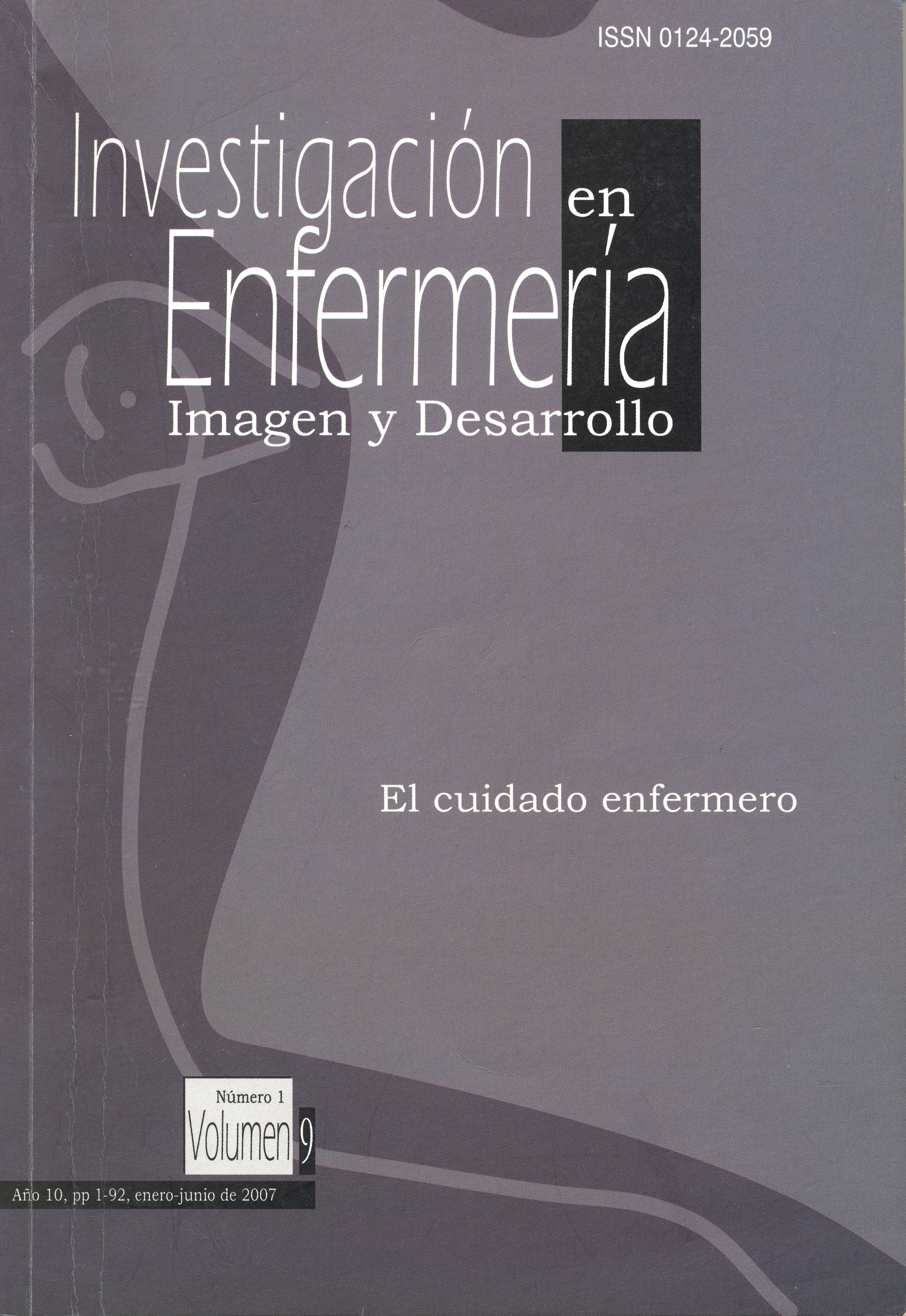Abstract
El dolor se ha convertido en un reto para los profesionales de la salud. Es un síntoma frecuente manifestado por los pacientes a diario. En muchas ocasiones se pasa por alto la importancia de poseer un conocimiento integral que permita comprender no sólo los cambios fisiológicos, sino la influencia de este en la vida del paciente y su entorno. Este artículo tiene como objetivo analizar la necesidad de aplicar en nuestra práctica diaria la teoría de los síntomas desagradables como una herramienta en la evaluación del dolor y para entender el verdadero significado del dolor desde un punto de vista integral, conociendo las características propias de cada individuo, al igual que sus factores fisiológicos, psicológicos y ambientales. Para tal fin se revisarán conceptos generales sobre el dolor y teorías de mediano rango y se aplicará la teoría de síntomas desagradables en la experiencia y vivencia propia de la percepción del dolor agudo y crónico.
ABSTRACT
The pain has become a challenge to the health professionals; it's a frequent symptom, showed by the patients daily. In many occasions, is overlooked the importance of having an integral knowledge that allow to understand not only the physiological changes but the influence of this in the patient life and environment. The objective of this article is to analyze the need to apply, in our daily practice, the unpleasant symptoms theory, as a useful tool in the pain evaluation and undestanding the true meaning of pain, from an integral point of view, knowing the characteristics of each individual, the same as the physiological, psychological and environmental facts. Also demonstrates that the theory, the investigation and the practice are not untied between them, in contrast, our daily practice founds more supports by the investigation, and so, counts with a wide and reasonable scientific sustenance. For such a purpose, general concepts about pain, medium range theories and the application of the unpleasan symptoms theory, in the personal experience, in the perception of chronicle and acute pain, are going to be checked.
La revista Investigación en Enfermería. Imagen y Desarrollo se encuentra registrada bajo la licencia Creative Commons Reconocimiento 4.0 Internacional. Por lo tanto, esta obra se puede reproducir, distribuir y comunicar públicamente en formato digital, siempre que se reconozca el nombre de los autores y a la Pontificia Universidad Javeriana. Se permite citar, adaptar, transformar, autoarchivar, republicar y crear a partir del material, para cualquier finalidad (incluso comercial), siempre que se reconozca adecuadamente la autoría, se proporcione un enlace a la obra original y se indique si se han realizado cambios. La Pontificia Universidad Javeriana no retiene los derechos sobre las obras publicadas y los contenidos son responsabilidad exclusiva de los autores, quienes conservan sus derechos morales, intelectuales, de privacidad y publicidad.
El aval sobre la intervención de la obra (revisión, corrección de estilo, traducción, diagramación) y su posterior divulgación se otorga mediante una licencia de uso y no a través de una cesión de derechos, lo que representa que la revista y la Pontificia Universidad Javeriana se eximen de cualquier responsabilidad que se pueda derivar de una mala práctica ética por parte de los autores. En consecuencia de la protección brindada por la licencia de uso, la revista no se encuentra en la obligación de publicar retractaciones o modificar la información ya publicada, a no ser que la errata surja del proceso de gestión editorial. La publicación de contenidos en esta revista no representa regalías para los contribuyentes.


